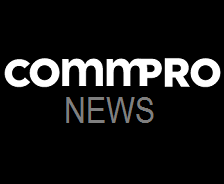82 Percent of Americans Register Concern About the Impact of Fake News
 A Commpro News Update
A Commpro News Update
The results of a new national poll finds that the proliferation of fake news is weighing heavily on the minds of Americans. According to A Real Plague: Fake News, hosted by Weber Shandwick, more than eight in 10 Americans reported that they are indeed concerned about the impact of fake news on the credibility of the media. This high level of concern is common to both political parties, both genders and increases with age.
In the findings, 75% of americans responded that they find it difficult to determine what news is accurate and what is not, and seven in 10 believe that they have read a fake news story. In addition, 71 percent of respondents think that fake news is contributing to incivility in society. Many believe that fake news stirs up emotions such as anger, confusion, anxiety and disengagement, all leading to greater incivility and polarization. With 69 percent of Americans believing that our country has a major civility problem, the spread of fake news has alarming consequences. More than half of Americans believe the level of civility in our nation could be improved if social media sites and search engines curbed fake news.
"People depend upon the truth to understand the world around them. Our research reveals that Americans are experiencing considerable doubt and confusion over what they are being told, what they are hearing and what they are reading," said Leslie Gaines-Ross, chief reputation strategist of Weber Shandwick. "The marketing and communications industry has an important role in facilitating solutions that advance trustworthy news and information to all Americans and Weber Shandwick is determined to do what we can to help in the fight against false news."
Americans blame a combination of sources for the distribution of fake news. When asked to write in who or what they think is primary responsible for the distribution of fake news, Americans most frequently named the media, social media, attention seekers and political entities such as parties and politicians. Democrats and Republicans had similar top sources of blame, though Republicans were twice as likely to name the media. Few Americans see themselves as responsible for the spread of fake news – only nine percent say they have ever shared a fake news story online.

